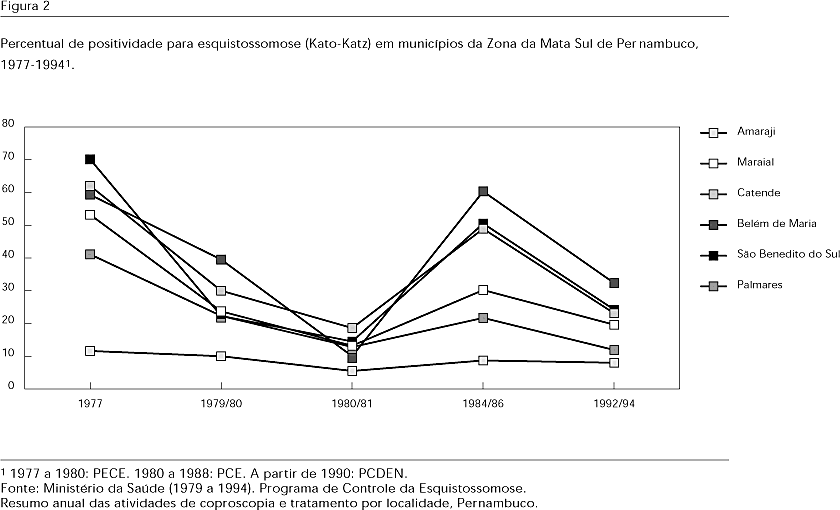In order to assess the present situation of schistosomiasis in the Zona da Mata Sul, Pernambuco State, Brazil, a study was conducted in the following phases: origin, historical and temporal evolution, and basic determinants of this health/disease process; critical assessment of comprehensive intervention programs implemented by the State in the region since 1970; and a case study in 17 counties, representing 1,424 communities and 485,200 inhabitants, and Brazil's second most endemic region based on prevalence rates for schistosomiasis. Temporal series over a 14-year period were used to analyze results of intervention programs. Conclusions were: a) current positivity rates are higher than those observed in the early 1980s; b) the programs' strategy focused almost exclusively on mass treatment, thus allowing for reinfestation and occurrence of new cases; c) proposals such as the PCDEN (Program for Control of Endemic Diseases in the Northeast) aimed at decentralization to the municipal level in the 1990s were not effectively implemented, helping to leave this persistent endemic out of control.
Schistosomiasis; Epidemiology; Control





